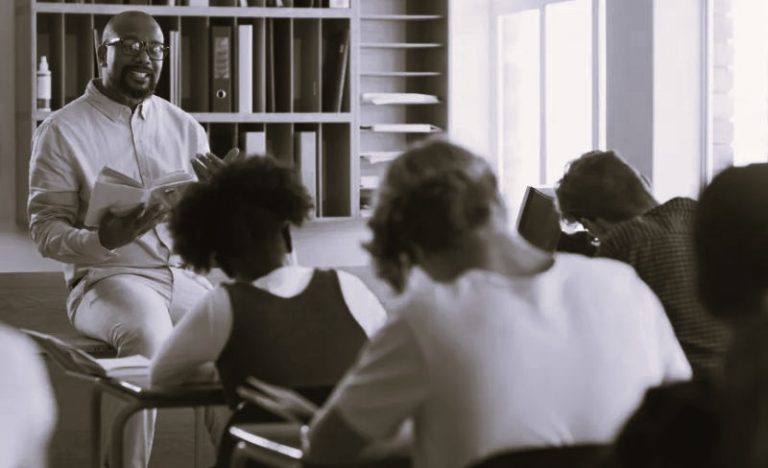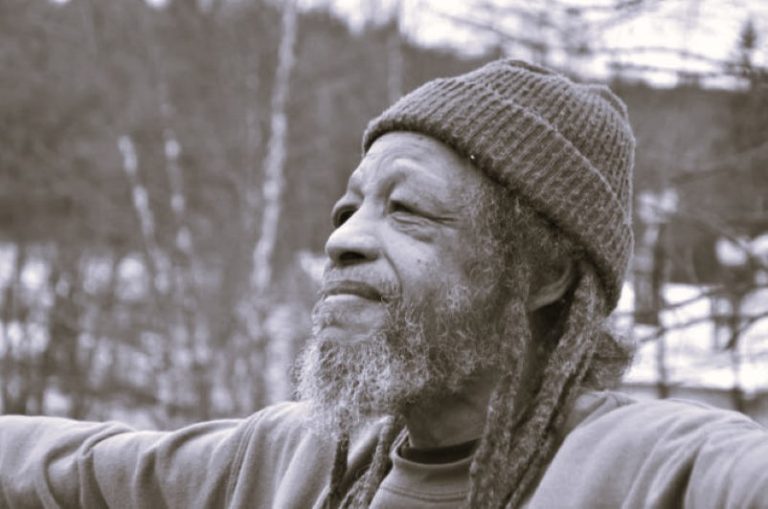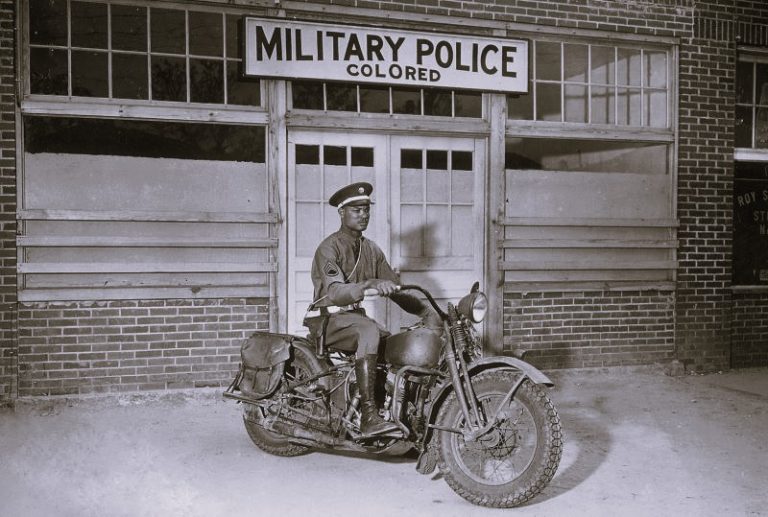


By Dr. Alan J. Singer
Professor of Teaching, Learning and Technology
Hofstra University
Thank you for inviting me to speak today at the Uniondale (NY) Public Library Martin Luther King, Jr. commemoration. It is a great honor. I speak as a Hofstra University educator, as a historian, as an activist, but also as a white man committed to social justice. I want to share my ideas about Dr. King’s legacy, but I also came tonight because I want to hear yours. In my talk I will use Negro rather than Black or African American because that is how Dr. King referred to himself.
In the tradition of Dr. Martin Luther King, Jr., I am here today to recruit you. At a time when democracy itself is under threat from a renegade President and his rightwing, often racist supporters, the United States desperately needs a renewed King-like movement for social justice. The world also desperately needs an expanded King-like movement for climate action. Where we are sitting now may be under water by the end of the 21st century, or even sooner. These are the movements I am recruiting you to join.
I am not recruiting you to a particular ideology, political program, or point of view. The world is constantly changing – we are all constantly changing. But I am recruiting you to become compassionate human beings with respect for diversity in the tradition of Dr. King. We need to be concerned with the needs of others who share this planet with us, to recognize their humanity, and to understand that they want the same things that we do for themselves and their families — adequate food and housing, decent education and medical care, safety, and hope for the future. We need to understand that just because someone does not live your way, practice your religion, or make the same choices that you make, does not mean they are wrong or less than you. These are some of the lessons I have learned from Dr. King.
The African American Civil Rights Movement in the United States was a major world historic event that motivated people to fight for social justice in this country and others. Its activism, ideology, and achievements contributed to the women’s rights movement, the gay and lesbian rights movement, the struggle for immigrant rights, and the anti-war movement in this country. It inspired anti-Apartheid activists in South Africa and national liberation movements in Third World countries.
The traditional myth about the Civil Rights Movement, the one that is taught in schools and promoted by politicians and the national media, is that Rosa Parks sat down, Martin Luther King stood up, and somehow the whole world changed. But the real story is that the Civil Rights Movement was a mass democratic movement to expand human equality and guarantee citizenship rights for Black Americans. It was definitely not a smooth climb to progress. Between roughly 1955 and 1968 it had peaks that enervated people and valleys that were demoralizing. Part of the genius of Dr. King was his ability to help people “keep on keeping on” when hope for the future seemed its bleakest.
While some individual activists clearly stood out during the Civil Rights Movement, it involved hundreds of thousands of people, including many White people, who could not abide the U.S. history of racial oppression dating back to slavery days. It is worth noting that a disproportionate number of whites involved in the Civil Rights movement were Jews, many with ties to Long Island. In the 1960s, the Great Neck Committee for Human Rights sponsored an anti-discrimination pledge signed by over 1,000 people who promised not to discriminate against any racial or ethnic groups if they rented or sold their homes. They also picketed local landlords accused of racial bias. The Human Rights Committee and Great Neck synagogues hosted Dr. King as a speaker and raised funds for his campaigns on multiple occasions.
King and Parks played crucial and symbolic roles in the Civil Rights Movement, but so did Thurgood Marshall, Myles Horton, Fanny Lou Hammer, Ella Baker, A. Philip Randolph, Walther Reuther, Medger Evers, John Lewis, Bayard Rustin, Pete Seeger, Presidents Eisenhower and Johnson, as well as activists who were critics of racial integration and non-violent civil disobedience such as Stokely Carmichael, Malcolm X, and the Black Panthers.
The stories of Rosa Parks and Martin Luther King have been sanitized to rob them of their radicalism and power. Rosa Parks was not a little old lady who sat down in the White only section of a bus because she was tired. She was only 42 when she refused to change her seat and made history. In addition, Parks was a trained organizer, a graduate of the Highlander School where she studied civil disobedience and social movements, and a leader of the Montgomery, Alabama NAACP. Rosa Parks made a conscious choice to break an unjust law in order to provoke a response and promote a movement for social change.
Martin Luther King challenged the war in Vietnam, U.S. imperialism, and laws that victimized working people and the poor, not just racial discrimination. When he was assassinated in Memphis, Tennessee, he was helping organize a sanitation workers union. If Dr. King had not be assassinated, but had lived to become an old radical activist who constantly questioned American policy, I suspect he would never have become so venerated. It is better for a country to have heroes who are dead, because they cannot make embarrassing statements opposing continuing injustice and unnecessary wars.
The African American Civil Rights Movement probably ended with the assassination of Dr. King in April 1968 and the abandonment of Great Society social programs by the Democratic Party, but social inequality continues. What kind of country is it when young Black men are more likely to be involved with the criminal justice system than in college, inner city youth unemployment at the best of times hovers in the high double-digits, and children who already have internet access at home are the ones most likely to have it in school? What kind of country is it when families seeking refuge from war, crime, and climate disruption are barred entry to the United States or put in holding pens at the border? These are among the reasons I am recruiting everyone to a movement for social justice. These are the things that would have infuriated Martin Luther King.
I promised I would share excerpts from four of Dr. King’s speeches. Everyone has the phrases and speeches that they remember best. Most Americans are familiar with the 1963 “I have a Dream” speech at the Lincoln Memorial in Washington DC and the 1968 “I’ve been to the Mountaintop” speech in Memphis just before he died. These are four other speeches that still resonate with me the most today.
The first speech I reference is one for local Uniondale, Long Island, and Hofstra pride. In 1965, Dr. King was honored and spoke at the Hofstra University graduation. It was less than one year after he received the Nobel Peace Prize and three years before his assassination. In the speech Dr. King argued “mankind’s survival is dependent on man’s ability to solve the problems of racial injustice, poverty and war” and that the “solution of these problems is . . . dependent upon man squaring his moral progress with his scientific progress, and learning the practical art of living in harmony.” I have no doubt that if Dr. King were alive today, he would be at the forefront of the Black Lives Matter movement, demands for gun control, climate activism, and calls for the impeachment of Donald Trump.
In his Hofstra speech, Dr. King told graduates, families, and faculty, “we have built machines that think, and instruments that peer into the unfathomable ranges of interstellar space. We have built gigantic bridges to span the seas, and gargantuan buildings to kiss the skies . . . We have been able to dwarf distance and place time in chains . . . Yet in spite of these spectacular strides in science and technology, something basic is missing. That is a sort of poverty of the spirit, which stands in glaring contrast to our scientific and technological abundance. The richer we have become materially, the poorer we have become morally and spiritually. We have learned to fly the air like birds and swim the sea like fish. But we have not learned the simple art of living together as brothers.”
Always a man of hope, as well as of peace, Dr. King concluded that he had faith in the future and that that people would “go all out to solve these ancient evils of mankind” but he also acknowledged that the struggle would be difficult and that “there is still a great deal of suffering ahead.” He then challenged the graduates to become “an involved participant in getting rid of war, and getting rid of poverty, and getting rid of racial injustice. Let us not be detached spectators or silent onlookers, but involved participants.” Dr. King would have been here to recruit you too.
Letter from Birmingham Jail was not originally given as a speech, but Dr. King recorded it later so I am including an excerpt here where he explained the legitimacy and urgency of direct political action, the kind that brought down apartheid in South Africa and we are seeing from young people in Hong Kong today.
“Why direct action? Why sit ins, marches and so forth? . . . Nonviolent direct action seeks to create such a crisis and foster such a tension that a community which has constantly refused to negotiate is forced to confront the issue. It seeks so to dramatize the issue that it can no longer be ignored . . . The purpose of our direct action program is to create a situation so crisis packed that it will inevitably open the door to negotiation . . . We know through painful experience that freedom is never voluntarily given by the oppressor; it must be demanded by the oppressed. Frankly, I have yet to engage in a direct action campaign that was “well timed” in the view of those who have not suffered unduly from the disease of segregation. For years now I have heard the word “Wait!” It rings in the ear of every Negro with piercing familiarity. This “Wait” has almost always meant “Never.” We must come to see, with one of our distinguished jurists, that “justice too long delayed is justice denied.”
I was an anti-war activist in the 1960s and this speech by Dr. King had particular importance for me at the time. On April 4, 1967, at a meeting of Clergy and Laity Concerned about Vietnam at Riverside Church in New York City, he denounced U.S. involvement in the war on Vietnam and imperialism in general.
“As I have called for radical departures from the destruction of Vietnam, many persons have questioned me about the wisdom of my path . . . ‘Peace and civil rights don’t mix,’ they say . . . There is at the outset a very obvious and almost facile connection between the war in Vietnam and the struggle I and others have been waging in America. A few years ago there was a shining moment in that struggle. It seemed as if there was a real promise of hope for the poor, both black and white, through the poverty program. There were experiments, hopes, new beginnings. Then came the buildup in Vietnam, and I watched this program broken and eviscerated as if it were some idle political plaything of a society gone mad on war. And I knew that America would never invest the necessary funds or energies in rehabilitation of its poor so long as adventures like Vietnam continued to draw men and skills and money like some demonic, destructive suction tube . . . We were taking the black young men who had been crippled by our society and sending them eight thousand miles away to guarantee liberties in Southeast Asia which they had not found in southwest Georgia and East Harlem . . . I could not be silent in the face of such cruel manipulation of the poor . . .. For the sake of those boys, for the sake of this government, for the sake of the hundreds of thousands trembling under our violence, I cannot be silent.
In the same speech Dr. King argued: “I am convinced that if we are to get on the right side of the world revolution, we as a nation must undergo a radical revolution of values . . .We must rapidly begin the shift from a thing-oriented society to a person-oriented society. When machines and computers, profit motives and property rights, are considered more important than people, the giant triplets of racism, extreme materialism, and militarism are incapable of being conquered. A true revolution of values will soon cause us to question the fairness and justice of many of our past and present policies . . . True compassion is more than flinging a coin to a beggar. It comes to see that an edifice which produces beggars needs restructuring. A true revolution of values will soon look uneasily on the glaring contrast of poverty and wealth. With righteous indignation, it will look across the seas and see individual capitalists of the West investing huge sums of money in Asia, Africa, and South America, only to take the profits out with no concern for the social betterment of the countries, and say, ‘This is not just.’”
On August 16 in Atlanta, Georgia, at the annual meeting of the Southern Christian Leadership Conference,Dr. King asked, “Where do we go from here?” It is a question people concerned with social justice are still asking today.
“The movement must address itself to the question of restructuring the whole of American society. There are forty million poor people here. And one day we must ask the question, “Why are there forty million poor people in America?” And when you begin to ask that question, you are raising questions about the economic system, about a broader distribution of wealth. When you ask that question, you begin to question the capitalistic economy. And I’m simply saying that more and more, we’ve got to begin to ask questions about the whole society. We are called upon to help the discouraged beggars in life’s marketplace. But one day we must come to see that an edifice which produces beggars needs restructuring. It means that questions must be raised. You see, my friends, when you deal with this, you begin to ask the question, “Who owns the oil?” You begin to ask the question, “Who owns the iron ore?” You begin to ask the question, “Why is it that people have to pay water bills in a world that is two-thirds water?” These are questions that must be asked . . . [W]hen I say question the whole society, it means ultimately coming to see that the problem of racism, the problem of exploitation, and the problem of war are all tied together. These are the triple evils that are interrelated.”
So where do we go from here?
Will our country be on the right side of history?
Will each of us be part of defining a direction and participate in direct action to achieve social change?
Will you join, not me, but in Dr. King’s memory, the struggle to achieve racial, social, and economic justice in the United States and the world?
I know I said I would only refer to four King speeches, but I need to reference one more, this time by his nine-year-old granddaughter Yolanda Renee King at the 2018 March for Our Lives Rally in Washington DC.
“My grandfather had a dream that his four little children will not be judged by the color of the skin, but the content of their character. I have a dream that enough is enough. And that this should be a gun-free world, period. Will you please repeat these words after me? Spread the word, have you heard? All across the nation we are going to be a great generation. Now, I’d like you to say it like you really, really mean it. Spread the word, have you heard? All across the nation we are going to be a great generation.”
Originally published by History News Network, 01.19.2020, reprinted with permission for educational, non-commercial purposes.






